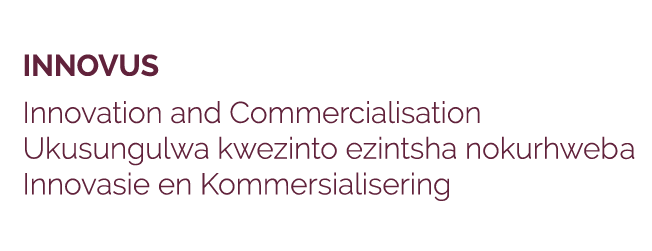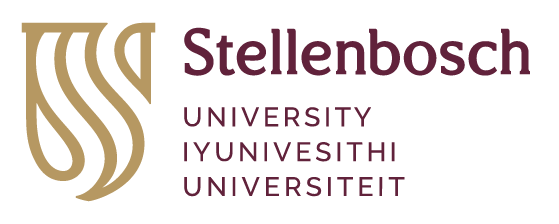Three SU innovations included on BI’s list of top innovations: a shark safe barrier; a shipping container that can provide green energy and the world’s first successful penis transplant.
Stellenbosch University is proud of our reputation as a research university at the forefront of innovation; therefore, we were delighted that the well-known website, Business Insider, included three inventions from the University in their top 10 most exciting inventions for the past decade.
The three inventions, a shark safe barrier, a shipping container that can provide green energy to people in rural areas and the world's first successful penis transplant, counts amongst Business Insider's favourite inventions in the past ten years.
Keeping people and sharks safe
SharkSafe, as the name suggests, makes the sea safe – both from sharks and for sharks - by releasing a magnetic and biomimicry barrier which doesn't interfere with other sea-life. The eco-friendly technology used combines magnetic and visual stimuli to deter shark species considered dangerous to humans. In this way the technology protects people from sharks while simultaneously protecting the sharks and other marine life.
The eventual aim of SharkSafe is to have fewer carcasses in the so-called 'safety nets', and a safer swim for all.
In February 2019 SharkSafe completed their first test deployment of a SharkSafe Barrier installation on Réunion Island. To date, no sharks have passed through the barrier, and it had also survived rough sea conditions. If this test proves effective, it may lead to full commercial installations off the coast of Réunion. SharkSafe has also received requests for quotations from Florida, Dubai, Australia and Saudi Arabia.
SharkSafe has also conducted further engineering tests to improve the barrier's performance in shallow water, as well as deep-sea anchorage. Sharksafe was established as a company by Innovus, the technology transfer office of Stellenbosch University.
Power to rural women
Established in 2016, Solar Turtle is the brainchild the CTO James van der Walt, who developed the concept and first prototypes during his studies at the SU Engineering Faculty.
The initiative had the intention of making our country a better place to live for many who are, quite literally, on the outskirts of society – our rural communities.
Solar Turtle attaches theft-proof solar panels to shipping containers (the 'PowerTurtle'), making energy available to anyone (like schools and clinics), which is especially significant in rural areas. This social enterprise designs and manufactures solar-powered energy hubs or kiosks used by entrepreneurs to provide a source of energy to community members in rural and off-grid areas.
The kiosks were distributed to various parts of SA. They have solar-powered photovoltaic (PV) panels which open during the day to collect sunlight and close at night, locking securely into the container.
The company describes the kiosk, or Solar Turtle, as follows: "The SolarTurtle feeds just like a turtle. In the morning, when it is safe, the panels unfold from their secure location to feed on the rays of the sun. In the evening, when it is unsafe, the panels fold away into the hard shell of the container."
With the help of a community leader Tyali (the first 'turtlepreneur' and now business partner), the first Solar Turtle installation took place at Ngangolwandle High School, where kids can now charge their phones. At the same time, they learn, and teachers can power laptops and tablets. The community can also buy bottles of electricity in the same way you purchase milk – recycled bottles are retrofitted with a battery and a 12V socket which can be charged at the container and then taken home again to power lights and cooking equipment.
It wasn't long before the container became a full-service kiosk, which sells everything from airtime to iced lollies and cooldrinks, makes copies of IDs and documents and even has a functional internet café, all run by women in the community.
So far, Solar Turtle has been the recipient of highly regarded awards (WWF Climate Solver, Siemens Empowering People) and is taking their involvement a few steps further by training up members of the community to do maintenance and power installation in the homes of those living in Solar Turtle communities. Thanks to a great idea and the gap-bridging funding from the TIA Seed Fund, the dark nights are substantially brighter for people in previously neglected communities, allowing them to be responsible for their own futures.
First penis transplant
Prof André van der Merwe, Head of the Division of Urology at SU's Faculty of Medicine and Health Sciences (FMHS), and his team at Tygerberg Hospital performed the world's first successful penis transplant on 11 December 2014. In an article of Business Insider published on 13 May 2015 Prof van der Merwe said the patient was doing very well and is living a healthy life. "His urinary and sexual functions returned to normal, and he has virtually forgotten that he had a transplant." The patient was 21 years old when his penis was amputated after he developed severe complications due to a traditional circumcision as a rite of passage into manhood.
The second successful transplant by Dr van der Merwe and his team was done on 21 April 2017, making it the first medical centre in the world to perform this procedure twice successfully. The marathon operation of nine and a half hours was done on a 40-year-old man who has lost his penis 17 year before due to complications after a traditional circumcision.
Each year thousands of young men undergo circumcisions in traditional rituals, many of whom lose their penises each year due to medical complications.
FOR FURTHER ENQUIRIES
Petro Mostert
petromostert@sun.ac.za
M 082 334 6193
Innovus, Stellenbosch University
|
15 De Beer Street
Stellenbosch
7600
South Africa
|
PO Box 3135
Matieland
7602
South Africa
|
|
t +27 (0) 21 808 3826
e info@innovus.co.za
e forms@sun.ac.za |

